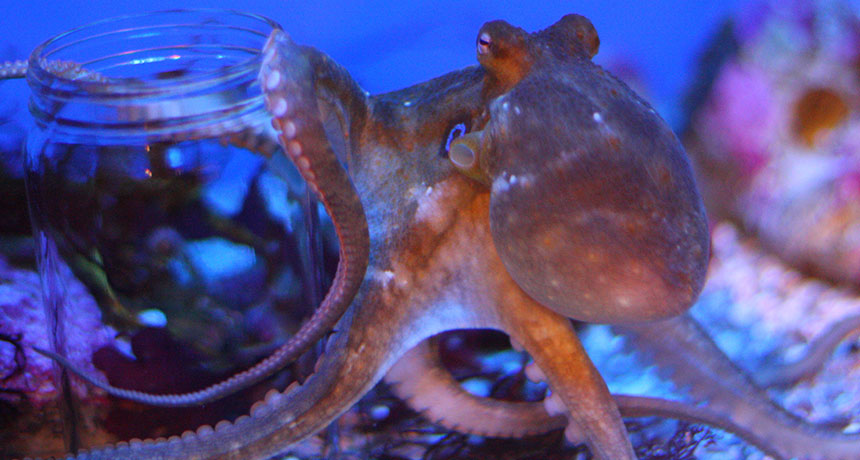
CLEVER CRITTER The genome of the California two-spot octopus may reveal why it’s so smart.
Nathan Rupert/Flickr (CC BY-NC-ND 2.0)

CLEVER CRITTER The genome of the California two-spot octopus may reveal why it’s so smart.
Nathan Rupert/Flickr (CC BY-NC-ND 2.0)